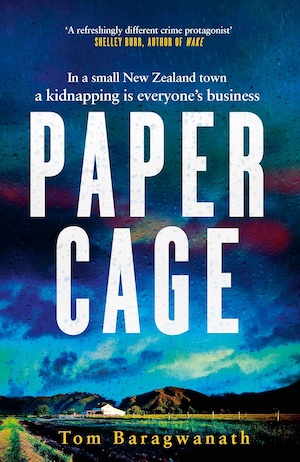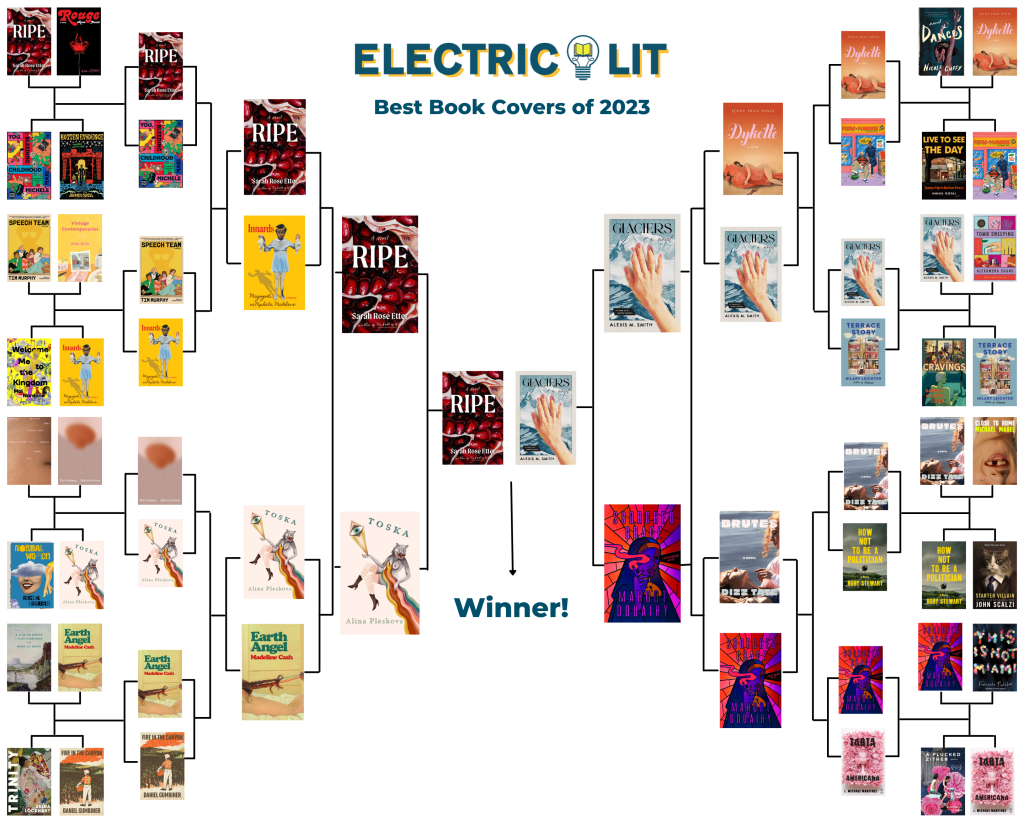
There’s truth to the adage write what you know. New Zealand author Tom Baragwanath follows this advice by setting his debut novel in Masterton, where he’s from, resulting in a strong and authentic sense of place. On the other end of the spectrum, he defies it by using a female protagonist and creating an utterly convincing character – one so genuine that Paper Cage can serve as a masterclass in writing women for other male writers.
Lorraine Henry, referred to as Aunty Lo by her Māori in-laws, works as a records clerk at the local police station. She has little authority, as her boss, Ambrose, constantly reminds her. A little over a month ago, Precious Kīngi, a young Māori girl, vanished from her home. Shortly after, Lorraine witnessed her niece’s son Bradley and his companion Hēmi catching eels in the neighbourhood. Hēmi, who is eight years old, has also disappeared without a trace.
The police are dragging their feet in finding the children, so a detective from Wellington is dispatched to spur them into action. Justin Hayes, a tired man, “dressed like a stork that’s fallen through a wardrobe,” immediately recognises Lorraine’s value and demands that she be included in the investigation.
Lorraine’s maternal instincts kick in when Bradley disappears from his birthday party. Lorraine’s sister and husband died tragically, leaving her to raise her niece, Sheena, and son. Sheena has grown up and now has a gang member boyfriend and a drug habit. Not the best circumstances for raising a child. However, Lorraine’s influence is limited. Despite her late husband Frank’s Māori heritage, she is not considered a part of the neighbourhood.
Lorraine is feeling her middle-age with a painful hip, being under-appreciated both at work and by Sheena. Justin is the only one who acknowledges that everyone is taking advantage of her and leaving nothing for herself. She also grows increasingly reliant on and fond of Patty, her supportive neighbour who recently moved in.
Lorraine is injured during a standoff between the police and Sheena’s boyfriend, and is placed on administrative leave, with Ambrose implying that her position may be terminated. Justin risks his job by giving her copies of the case files, hoping that with her knowledge of the community, she will find a new lead. The police, predictably, blame the children’s disappearance on a turf war between local gangs, highlighting existing prejudices and the notion of us and them.
Paper Cage is an acutely observed portrait of a community with a strong social commentary, addressing historical and current issues such as racial discrimination, poverty, drug and alcohol abuse and gang-related violence. What sets it apart from some other novels of its kind is the sensitivity with which Baragwanath seamlessly inserts these issues into the narrative. He doesn’t underestimate readers’ intelligence, but rather leaves them to draw their own conclusions.
It’s not just about the subjects covered; it’s also about the writer’s ability and style, how the message is conveyed and ensuring a pleasant reading experience. Baragwanath’s writing crackles with tension. It’s in the small details Lorraine observes in the neighbourhood, the slumbering anticipation of violence about to erupt, and a community on edge following a lifetime of prejudice and societal difficulties.
Paper Cage is beautifully atmospheric and descriptive – often, hauntingly poetic. It manages to strike a delicate balance between the action propelling the story and quiet moments establishing setting or scene. Writing a good crime novel is one thing; moving your reader is quite another. Baragwanath succeeds in doing both.
For more New Zealand crime fiction, check out these authors.
Baskerville
Print/Kindle/iBook
£11.49
CFL Rating: 5 Stars






